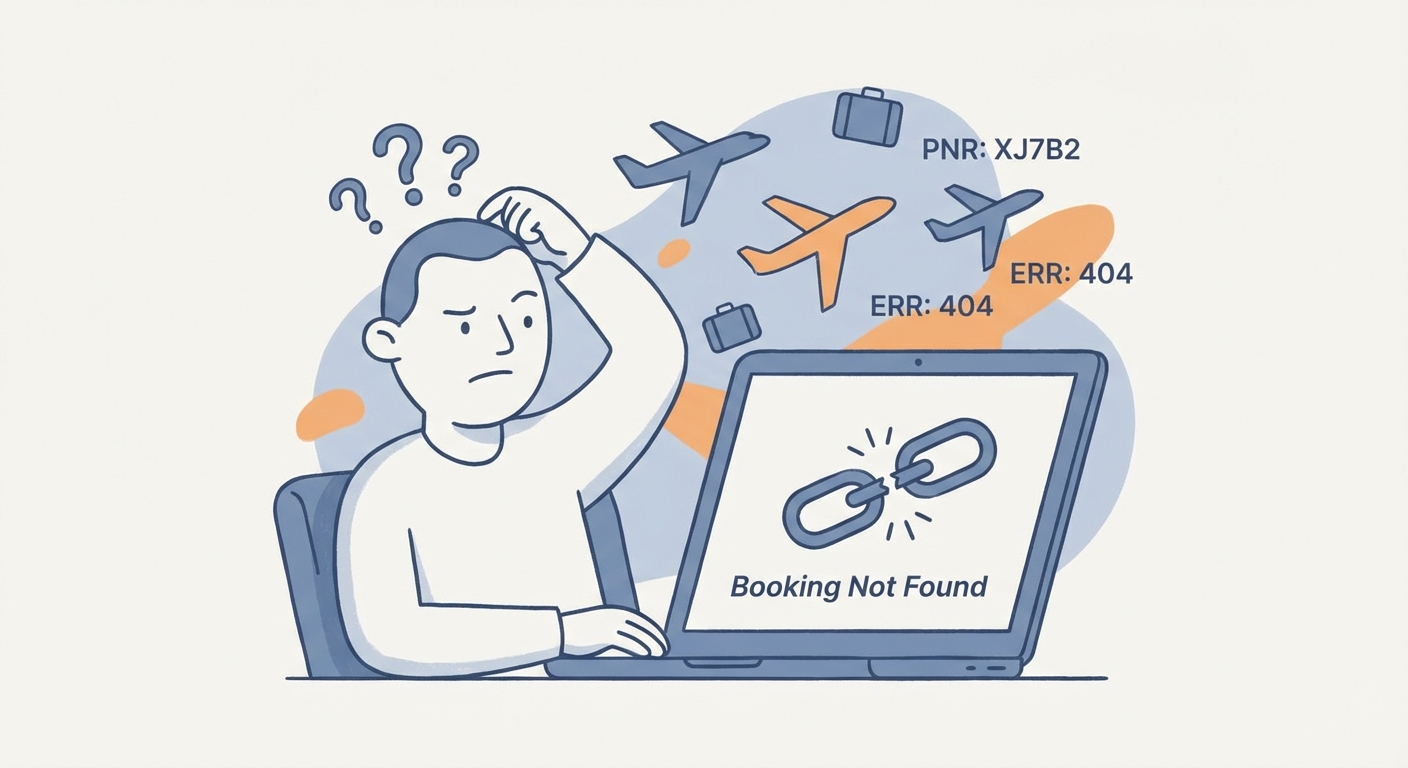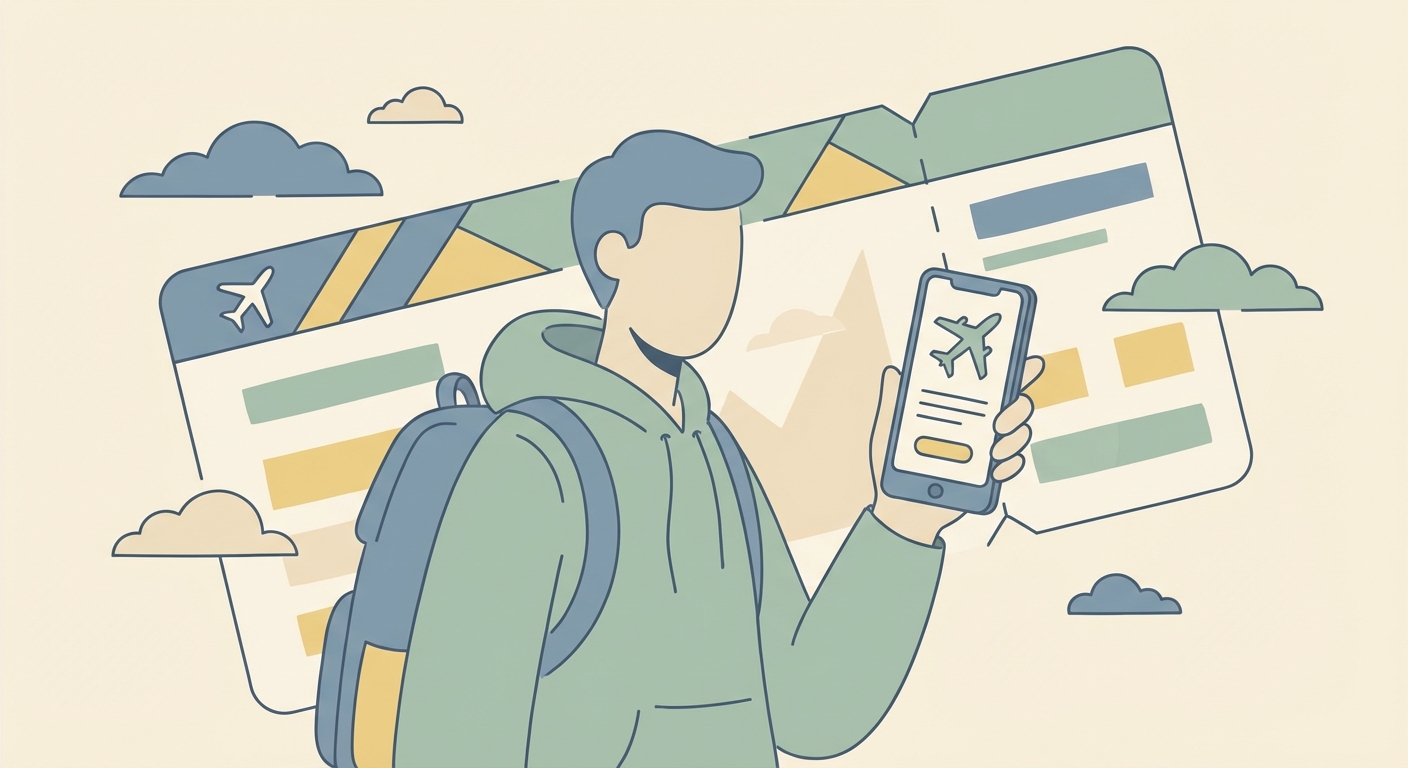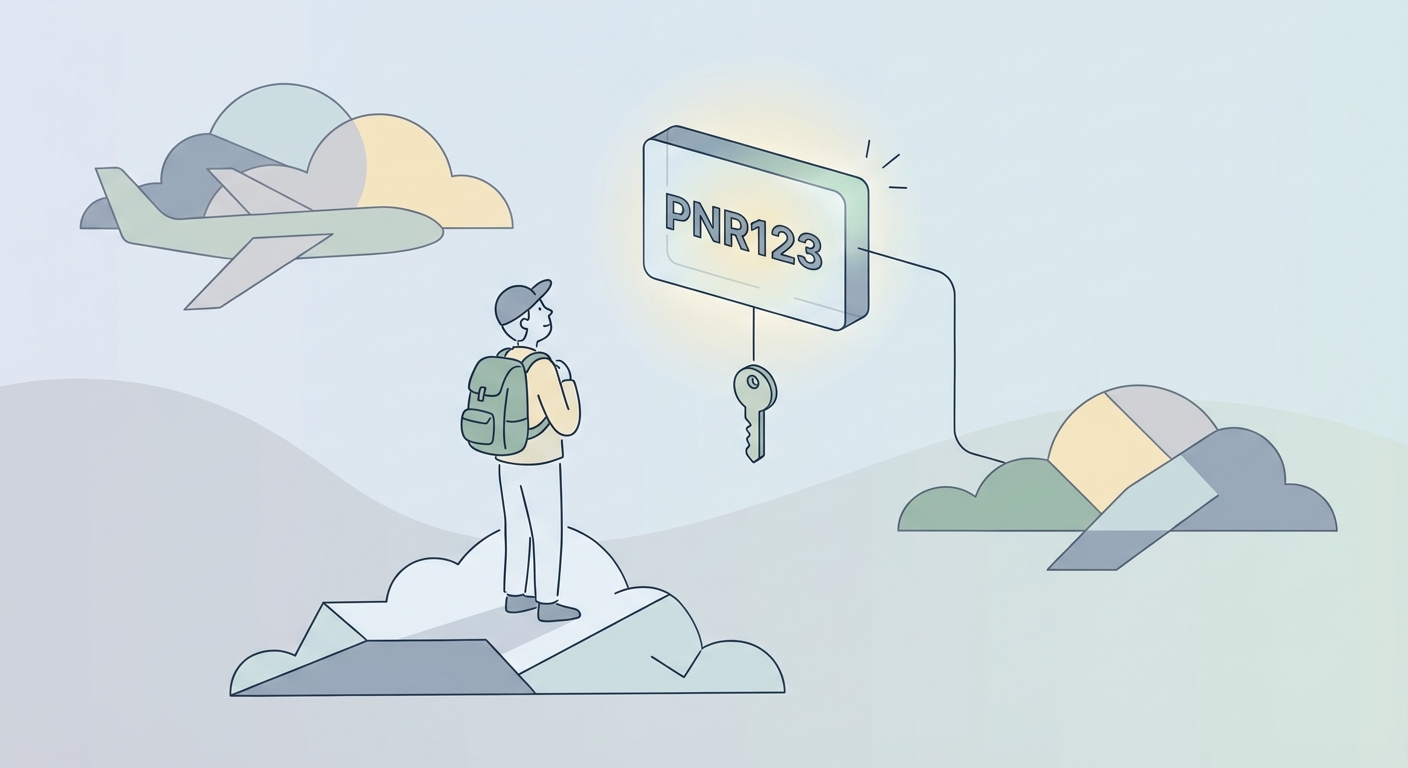Decoding Travel Data Privacy: A Guide for the Global Explorer
Why Travel Data Privacy Matters: Risks on the Road
Planning an international trip involves more than just booking flights and hotels; it also means understanding how your personal data is collected and used. Your travel data privacy matters because the information you share can be vulnerable to various risks on the road.
Travel companies amass a vast amount of your personal information. (The Importance of Data Privacy for Travel Companies - CyPro) This includes:
- Names
- Addresses
- Passport details
- Travel itineraries
- Payment information
- Preferences (meals, seating)
- Loyalty program details
This extensive data is then shared with numerous third parties. (Data Sharing and Third Parties - Satori) These include:
- Airlines, Hotels, Car Rental Agencies, Tour Operators: These partners often need your data to fulfill your booking. However, they might also share it with their own marketing affiliates, leading to unwanted targeted ads or even profiling based on your travel habits. For example, a hotel might share your stay details with a local attraction company, resulting in targeted promotions for that attraction, which you might not have wanted.
- Payment Processors: They handle your financial transactions. While essential, if their systems are breached, your credit card details could be exposed, leading to direct financial fraud.
- Marketing Companies: These companies use your data to build detailed profiles for targeted advertising. Your loyalty program details, for instance, could be used to infer your spending habits and preferences, leading to highly personalized (and sometimes intrusive) marketing campaigns across various platforms. They might even sell this aggregated data to other marketers.
- Border Control Agencies: Governments can access your travel data for security purposes. While often legitimate, the risk lies in potential overreach or misuse, especially in countries with less robust privacy protections where such data could be accessed without a warrant, potentially leading to unwarranted scrutiny or even denial of entry based on inferred information.
This creates a complex web of data flow, increasing the risk of breaches and misuse.
Your travel data is susceptible to several risks, including:
- Data breaches and cyberattacks: Sensitive travel data is a valuable target for hackers, leading to identity theft and financial fraud.
- Unauthorized access by governments: Some countries may have laws allowing government access to travel data without warrants. This means your itinerary or personal details could be accessed by authorities without your knowledge or consent.
- Discriminatory pricing and profiling: Travel companies could use your data to personalize prices based on sensitive characteristics. For example, if your data suggests you're from a wealthier region, you might be shown higher prices for flights or hotels.
Understanding these risks is the first step in protecting your travel data. Being aware of the data collected and with whom it is shared is essential for making informed decisions about your privacy.
As you explore the world, it's crucial to understand the vast amount of data collected and the potential risks involved. The next section will delve into the specific regulations designed to protect your data across borders.
Key Travel Data Privacy Regulations Around the World
Many countries recognize the importance of protecting travel data, but their approaches vary significantly. Let's explore some key regulations that shape global data privacy.
The General Data Protection Regulation (GDPR), a landmark in data privacy, applies to any company processing personal data of EU citizens, regardless of the company's location. What Future for Cross-Border Transfers of Personal Data? highlights the challenges organizations face in ensuring GDPR compliance when transferring data outside the EU.
Key rights granted by GDPR include:
- Right to access: Individuals can request information about the data a company holds on them.
- Right to rectification: Incorrect data must be corrected promptly.
- Right to erasure: Also known as the "right to be forgotten," this allows individuals to request the deletion of their data under certain conditions.
- Right to restrict processing: Individuals can limit how their data is used.
- Right to data portability: Individuals can receive their data in a structured, commonly used format and transfer it to another controller.
Organizations must have a lawful basis for processing data. This means they need a valid legal reason to collect and use your information. For example:
- Consent: You explicitly agree to receive marketing emails from an airline about new destinations.
- Contract: An airline needs your name and passport details to book your flight ticket, as this is necessary to fulfill the contract of carriage.
- Legitimate Interest: A hotel might analyze guest feedback to improve its services, which is a legitimate business interest, provided it doesn't override your privacy rights.
The Irish Data Protection Commission fined Meta 1.2 billion euros for GDPR violations related to data transfers to the US, even with Standard Contractual Clauses (SCCs) and additional measures in place. This significant fine underscores the complexities and risks involved in transferring EU citizens' data to countries like the US, which have different legal frameworks for data protection. This is a common scenario for international travel, where data frequently flows between the EU and the US, highlighting the ongoing challenges in ensuring adequate data protection during these cross-border transfers.
California has set the pace for data privacy in the United States. The California Consumer Privacy Act (CCPA), amended by the California Privacy Rights Act (CPRA), grants California residents significant rights over their personal information.
These rights include:
- Right to know: Consumers can request details about the data collected about them.
- Right to delete: Consumers can ask businesses to delete their personal information.
- Right to opt-out: Consumers can prevent the sale or sharing of their data.
- Right to correct: Consumers can fix inaccurate information that a business has about them.
The CCPA applies to businesses that collect personal information of California residents and meet certain revenue or data processing thresholds. The DLA Piper guide outlines the complexities of US data protection laws, noting that the CCPA uniquely applies to employee and B2B contexts. The CPRA established the California Privacy Protection Agency (CPPA) to enforce the law and issue regulations.
Many other US states have enacted comprehensive privacy laws, including Virginia (Virginia Consumer Data Protection Act - VCDPA), Colorado (Colorado Privacy Act - CPA), Utah (Utah Consumer Privacy Act - UCPA), and Connecticut (Connecticut Data Privacy Act - CTDPA). These laws generally grant similar rights to consumers as the CCPA/CPRA, reflecting a growing trend of state-level privacy legislation across the US.
The lack of a comprehensive federal privacy law in the US creates a complex compliance landscape.
This patchwork of state laws contrasts with the GDPR's unified approach.
Executive Order 14117 aims to restrict access by countries of concern to Americans’ bulk sensitive personal data and United States Government-related data. This order prohibits covered data transactions with a country of concern or covered person that involves data brokerage, or transactions that grant a foreign person access to U.S. government-related data or bulk U.S. sensitive personal data. The DOJ Final Rule implementing the Executive Order defines prohibited, restricted, and exempt transactions.
Understanding these diverse regulations is essential for any organization handling travel data. The next section will examine the specific challenges of cross-border data transfers.
Practical Tips for Protecting Your Travel Data Privacy
Navigating the digital world while traveling can feel like walking a tightrope, especially when it comes to protecting your personal data. The good news is that by taking a few simple steps, you can significantly enhance your travel data privacy.
Before you even book your trip, take the time to read the privacy policies of airlines, hotels, and other travel services. It might seem tedious, but it's crucial to understand what data they collect, how they use it, and with whom they share it.
- Look for clear explanations about data collection practices.
- Pay attention to opt-out options for marketing communications.
- Check how long they retain your data and what security measures they use to protect it.
Protecting your travel accounts with strong passwords is a fundamental step, and using the same password across multiple sites makes you vulnerable to widespread breaches. Instead, create strong, unique passwords for all your travel accounts to minimize the risk.
- Make passwords long and complex, using a mix of upper and lowercase letters, numbers, and symbols.
- Avoid using personal information like your birthday or pet's name.
- Consider using a password manager to generate and securely store complex passwords.
Even with a strong password, your accounts can still be compromised. Adding an extra layer of security can be a game-changer.
- Enable 2FA on your travel accounts whenever possible.
- 2FA requires a code from your phone or authenticator app in addition to your password, making it much harder for hackers to access your accounts.
- Look for options like SMS codes, authenticator apps (e.g., Google Authenticator, Authy), or hardware security keys.
Free Wi-Fi at airports and cafes can be tempting, but it's often unsecured and can be easily intercepted by hackers. Therefore, you should avoid accessing sensitive travel information on public Wi-Fi networks.
- Wait until you have a secure connection to view booking confirmations or access bank accounts.
- Use a Virtual Private Network (VPN) to encrypt your internet traffic and protect your data on public Wi-Fi.
Travel apps can be incredibly convenient, but they often request access to a lot of your personal information. Be cautious about granting travel apps access to your location, contacts, and other sensitive data.
- Review app permissions regularly and revoke access that is no longer necessary.
- Consider using privacy-focused travel apps that minimize data collection.
When booking travel, especially with international agencies, check their data transfer policies. Ensure they do not transfer your data to countries of concern without adequate protection.
- Ask about the security measures used during data transfer.
- Look for agencies compliant with international data protection standards.
Taking these practical steps will empower you to safeguard your travel data and enjoy your adventures with greater peace of mind. Now that you have some tips to protect your data while traveling, the next step is to understand what to do if your data is compromised while traveling.
Safe Booking Practices: Choosing Privacy-Conscious Services
Planning your next adventure? Choosing the right booking services can greatly improve your travel data privacy and overall online protection. Here’s how to make informed decisions and safeguard your information.
When choosing travel services, look for privacy certifications and seals of approval. These certifications indicate that the company meets specific data protection standards.
- ISO 27001 certification demonstrates a commitment to information security management.
- TRUSTe certification indicates adherence to privacy practices.
Although these certifications are a good sign, remember that no certification guarantees perfect security.
Whenever possible, aim to book directly with airlines, hotels, and car rental companies. Direct bookings can offer more control over your data.
- Third-party booking sites often share your information with numerous partners.
- Direct channels may provide clearer opt-out options and data usage policies.
Before finalizing any bookings, carefully review the privacy policies of each service. Understanding their data practices will help you make an informed decision and protect your information.
- Look for clear explanations about data collection and sharing.
- Check for data transfer policies, especially for international agencies, to ensure compliance with GDPR or CCPA.
Many organizations are improving their data privacy practices to meet regulatory standards and customer expectations. For example, travel companies are increasingly implementing stringent data encryption and access controls, similar to those found in the healthcare and finance sectors, to protect sensitive customer data. This ensures that your booking details, payment information, and personal identifiers are kept secure.
Also, many companies are now conducting regular security audits to identify and fix potential vulnerabilities. This helps ensure that customer data remains safe from unauthorized access.
By prioritizing privacy-conscious services, you take an active role in protecting your travel data. This can lead to a safer and more secure travel experience.
Next, we will explore what to do if your data is compromised while traveling.
Understanding Data Transfers: Where Does Your Information Go?
Your travel data's journey doesn't end when you book a flight; it embarks on a complex international voyage of its own. Understanding where your information goes is crucial for protecting your privacy as a global explorer.
Travel often involves cross-border data transfers. This means your personal information may be sent to countries with different, and potentially weaker, data privacy laws.
- Be aware that some destinations may not offer the same level of data protection as your home country. For instance, GDPR, as previously discussed, sets a high standard for data protection, but not all countries adhere to similar regulations.
- Consider using travel services based in countries with strong data privacy laws, such as those within the European Union, to ensure your data receives better protection during transit. Other countries with robust data privacy frameworks include Canada, Japan, and Switzerland, which have enacted comprehensive data protection laws. The EU's approach is strong due to its emphasis on individual rights, strict consent requirements, and robust enforcement mechanisms.
- As previously mentioned, the DOJ Final Rule restricts access by countries of concern to Americans’ bulk sensitive personal data and United States Government-related data.
Ever wonder how long travel companies keep your data? It's essential to understand their data retention policies.
- Travel companies may retain your personal data for extended periods, even after your trip concludes. This includes details like your travel history, contact information, and payment details.
- Some may use this data for marketing purposes, while others need it for legal compliance.
- Inquire about the data retention policies of the services you use. You can request deletion of your data when it is no longer needed, exercising your "right to be forgotten" where applicable, as previously discussed.
You have rights regarding your personal data, especially under regulations like GDPR and CCPA. It is important to know how to exercise your rights as a data subject.
- Exercise your rights to access, correct, or delete your personal data. You can also restrict how companies process your information.
- Under data protection laws, you have the right to know what information a company holds about you, as mentioned earlier.
- Contact the travel company's Data Protection Officer (DPO) or privacy team to make requests and inquiries about your data.
Understanding where your data goes and what rights you have is vital for maintaining control over your travel data privacy. Now that you know where your data is going, the next section will delve into what to do if your data is compromised while traveling.
The Future of Travel Data Privacy
As the world becomes increasingly interconnected, the future of travel data privacy hinges on how we adapt to emerging technologies and push for global standards. What steps can travelers and the travel industry take to ensure personal data remains secure in a rapidly evolving landscape?
Biometric identification is gaining traction at airports and hotels, promising smoother, faster travel experiences. For example, airports like London Heathrow and Amsterdam Schiphol are implementing facial recognition systems for boarding, and airlines like Delta are using it for check-in and bag drop. These systems use unique physical traits, like facial recognition or fingerprints, to verify identity.
- Consider the privacy implications before opting into these systems.
- Understand what data is collected, how it is stored, and with whom it is shared. For instance, when an airport uses facial recognition, your facial scan might be stored temporarily for the duration of your journey or longer, and the privacy concerns include the potential for unauthorized access to this highly sensitive biometric data, which can't be changed like a password.
- Demand transparency and control over your biometric data. Ask for the option to use traditional identification methods.
Many organizations are exploring blockchain technology to enhance data security. Blockchain offers a decentralized and immutable ledger for storing and verifying travel data, potentially reducing the risk of data breaches. For example, some initiatives are exploring using blockchain for secure digital identities for travelers, allowing them to control who accesses their verified credentials.
Establishing international standards for data privacy is crucial for protecting travelers' rights across borders. Currently, data protection laws vary significantly from country to country, creating confusion and potential vulnerabilities.
- Support initiatives that promote stronger data protection for travelers, such as the development of common frameworks for data transfer and security.
- Advocate for greater transparency and accountability from travel companies regarding their data practices.
- Encourage governments to work together to create consistent, enforceable standards for travel data privacy.
As previously discussed, the GDPR and CCPA are examples of regulations that set high standards for data protection. However, their reach is limited without broader international cooperation.
Governments and organizations must collaborate to create a more secure and privacy-respecting travel ecosystem. By understanding the potential risks and supporting efforts to improve data protection, you can travel with greater peace of mind.
Now that you know what the future of travel data privacy holds, it's important to know what to do if your data is compromised while traveling.
Resources and Further Reading
Here's how you can access more travel data privacy information. These resources will help you stay informed and protect your data.
Need to report a privacy breach or want to understand your rights? Several data protection authorities can help.
- The European Data Protection Board (EDPB) offers guidance on GDPR and data transfer issues.
- For California residents, the California Privacy Protection Agency (CPPA) enforces CCPA/CPRA.
- Don't forget your local data protection authority, which can provide assistance specific to your region.
Want to dive deeper into travel data privacy? These links are a great starting point.
- Explore the GDPR official website for detailed information on regulations and compliance.
- The CCPA/CPRA official website offers insights into California's data privacy laws.
- Seek out travel privacy guides from consumer organizations that provide practical tips and advice for travelers.
Remember, knowledge is power when it comes to protecting your personal information.





